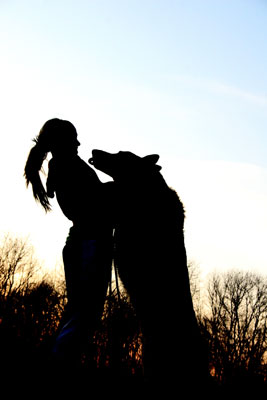All Nonfiction
- Bullying
- Books
- Academic
- Author Interviews
- Celebrity interviews
- College Articles
- College Essays
- Educator of the Year
- Heroes
- Interviews
- Memoir
- Personal Experience
- Sports
- Travel & Culture
All Opinions
- Bullying
- Current Events / Politics
- Discrimination
- Drugs / Alcohol / Smoking
- Entertainment / Celebrities
- Environment
- Love / Relationships
- Movies / Music / TV
- Pop Culture / Trends
- School / College
- Social Issues / Civics
- Spirituality / Religion
- Sports / Hobbies
All Hot Topics
- Bullying
- Community Service
- Environment
- Health
- Letters to the Editor
- Pride & Prejudice
- What Matters
- Back
Summer Guide
- Program Links
- Program Reviews
- Back
College Guide
- College Links
- College Reviews
- College Essays
- College Articles
- Back
Succeeding in Agility
In the late 1970s, a group of equestrians did something no one had ever thought to do before: train their dogs to complete a jumping course. This new discovery quickly became popular and developed into the sport we now know as dog agility.
In its simplest form, agility is a sequence of numbered obstacles, from jumps and tunnels to teeter-totters and weave poles. A handler must guide her dog through the course in the correct order and ensure her dog performs each obstacle correctly. If an obstacle is not completed the right way, points will be deducted from the team’s final score. Their “run” also must be under a set time called the standard course time. This is determined by the yardage of each individual course.
Some competitors become engulfed in the technicalities of the sport. They spend hours upon hours every day researching ways they can make their runs a millisecond faster. They obsess over training and push their dogs to be as fast as is physically possible for them. Qualifying and placements are the only things they care about. They seek to compete at higher level competitions solely for the attention they will receive. If their dog does not perform the way they would like, they punish him. They take all the fun out of the sport for their dog, and in turn, themselves. They are not passionate about their dogs; they are passionate about winning. These people are successful in the sense that they accomplish what they aim for but are considered unsuccessful in the sport.
Almost any experienced participant in agility will tell you winning means nothing. While getting first place or competing at the national/international level is a great feat and something to be proud of, the most important concept in the sport is the bond formed between a handler and her dog. Nothing in the world can compare to the feeling you get just running beside your best friend and knowing you are both having the time of your lives. A team does not have to be the fastest or even the most accurate to be successful. Success in agility is celebrating every moment spent with your companion. Success is being proud of your dog, even on the worst days. Success is finishing your worst run ever and praising your dog like he just won a national championship. You could be the person whose dog cannot even clear one jump without knocking down the bar and still be as successful as the person winning first place every time she step into the ring.
Success in agility is a lot deeper than just winning. It is all about the special moments experienced with your dog and loving him in spite of everything. After all, in your dog’s final hours, you won’t look back and say, “Man, I wish Spot had won more blue ribbons.”

Similar Articles
JOIN THE DISCUSSION
This article has 0 comments.
